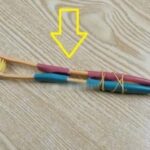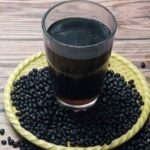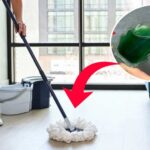Baking soda is a versatile and affordable household cleaner that can come in handy in a variety of situations. You can use it to wash certain types of pots and pans, remove stains from clothing, clean and deodorize carpets, and even unclog drains…
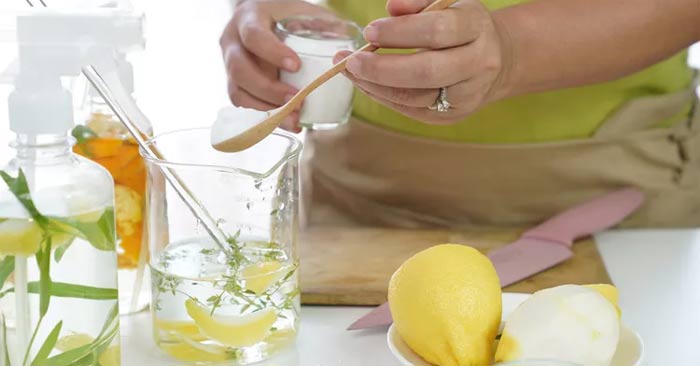
While many people praise the versatility of baking soda, it’s not the right cleaning product for every job. Its abrasive nature can damage delicate surfaces.
To maintain certain surfaces and materials in your home, it’s important to know when to avoid using baking soda. Here is a list of items you should never clean with baking soda.
Items Not to Clean with Baking Soda
Metal
Baking soda and certain metals don’t mix. You should avoid using it to clean jewelry, as it can scratch delicate materials like gold and remove coatings from other finishes.
Aluminum is another metal that doesn’t pair well with baking soda. Using it on aluminum can lead to dulling or discoloration, and it may even weaken the surface and reduce its shine with prolonged exposure.
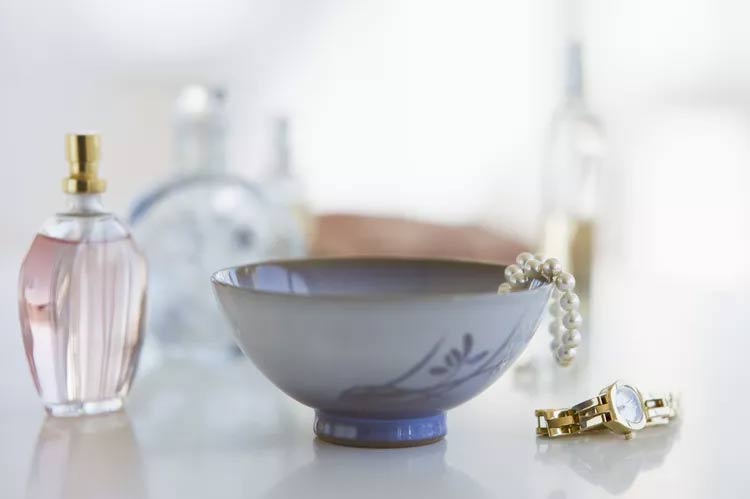
Electronics
Your electronic devices likely cost you a pretty penny, so you don’t want to take any risks when cleaning them. Remember that baking soda can scratch screens. But that’s not all; this cleaner can also seep into the device, causing further issues.
To be safe, use a regular screen cleaner designed specifically for electronics or follow more detailed instructions on the best way to clean a particular device.
Marble and Granite Countertops
Baking soda is not the ideal cleaning solution for marble or granite countertops. The reason is that it can scratch these surfaces, leading to dulling and signs of wear and tear.
The best alternative is to avoid any strong cleaning agents when dealing with these countertop materials and instead opt for a homemade cleaning solution containing water and dish soap.
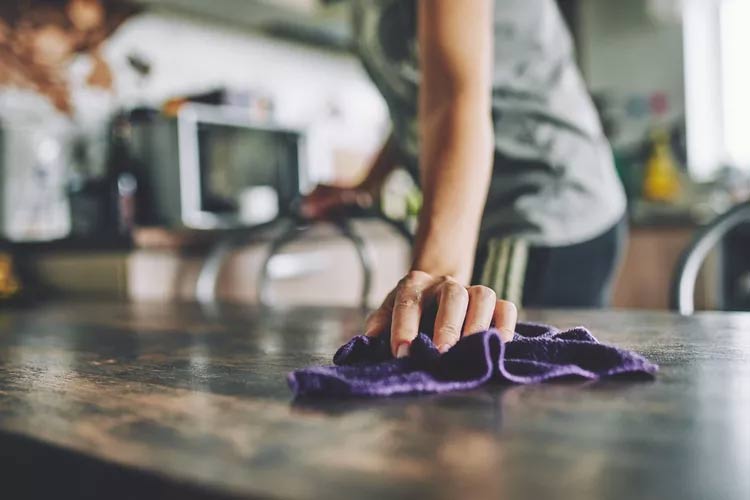
Wooden Furniture and Floors
Marble and granite aren’t the only common household materials that don’t play well with baking soda. Wood is another surface to avoid. Once again, baking soda can cause dulling and remove protective oils and fillers.
Using a specialized wood floor cleaner is your best bet to keep your wooden surfaces looking beautiful and new.
Leather
Leather and baking soda don’t make a great pair. The reason is that leather is sensitive to abrasives, so when you apply baking soda to leather, it risks scratching or abrading the material.
Glass or Mirrors
Murphy warns against using baking soda on glass or mirrors in your home because it can actually scratch the glass surface. This will cause the glass to become cloudy, which is the opposite of what you want when cleaning.
The experts recommend using a microfiber cloth along with a regular glass cleaner or a mixture of vinegar and water to get your mirrors sparkling clean.
























